 ★★★★
★★★★
“Bigger, stronger, faster, better!”
 Have you ever had this experience? There is a series you see and the series is fine, okay, solid. But without you noticing, you connect with these characters subconsciously, on an emotional level. As you watch them regularly, you get accustomed to them (though they are totally fictional) and don’t realize it until something happens, and you suddenly feel how much you have gotten attached to them. It’s not a new experience for me. It happens from time to time, but not often enough I would call it a rule, every time I watch a new TV show. Usually, I just passively experience the respective episodes and don’t waste much thought on it, least of all any kind of emotional investment.
Have you ever had this experience? There is a series you see and the series is fine, okay, solid. But without you noticing, you connect with these characters subconsciously, on an emotional level. As you watch them regularly, you get accustomed to them (though they are totally fictional) and don’t realize it until something happens, and you suddenly feel how much you have gotten attached to them. It’s not a new experience for me. It happens from time to time, but not often enough I would call it a rule, every time I watch a new TV show. Usually, I just passively experience the respective episodes and don’t waste much thought on it, least of all any kind of emotional investment.
It’s strange – at one point, when you started watching movies and series, you felt a strong emotional connection to everything, but today, it seems mostly gone. This does not only has to do with becoming a grown-up and seeing a lot more, but maybe also filmmakers and storytellers having forgotten the art of getting you emotionally involved in their plots and characters. But I have to say: A Certain Scientific Railgun got me, despite initially thinking I didn’t care much at all for the series. The show had been a satisfying, quite well told combination of “Slice of Life”-episodes, with some action-filled SF-arcs.
While for some. these “SoL” eps were unnecessary annoying filler episodes, I didn’t mind them. They provided additional colour to the big picture. I also was well aware I might not be the target audience: the Index series is the one supposed to be for the boys. Also, I went in without any specific expectations, always an advantage. Principally, I liked what I had seen, so had no problems with paying for another season. While sometimes things were maybe a bit too kawai for me, and the antics of a character like Kuroko Shirai could get on one’s nerves, the series was overall well thought-out, put attention into the details, and I enjoyed the emotional dispositions of the four girls, who all had their own character.
The next season arrived and… was even better?! Sure, it’s a subjective opinion, but I personally think the emotional investment I already had in the show paid off. The new season (from 2013, three years after the first was released) seemed to start like its predecessor: The girls going to school, spending time in their company, Kuroko abusing Mikoto… same old, same old, one might say. If one likes a season of a show, a new season is like meeting some good old friends again after a while. Then, the story starts to develop slowly… First in tiny steps that are hardly remarkable. There is a special art in storytelling when you are able to build up a story-line from small events to a big pay-off, when something finally can come to fruition and blossoms in a big climax.
People like Hitchcock, or some of the best action directors, know how to do that, but today I think it is virtually secret knowledge. I would certainly not have expected to find it in a Japanese anime, where you can be happy if one’s intelligence simply isn’t being insulted too much! It begins relatively harmlessly. Somebody claims to have seen Mikoto Misaka (our title-giving “scientific railgun”, thanks to her coin trick), but Mikoto wasn’t there at all. Then it happens again which leads to the girls talking about having a doppelganger, and eventually to the very interesting question, which forms the premise of this season: “What would you do, if you had a clone?”
 Another strange thing occurs. Somebody is leaving envelopes containing money in small, dark side-streets, leading to people going on their own treasure hunt, and Mikoto & Co. try to find out who’s doing that and why. The story constantly builds and you slowly realize that you are paying much more attention to the show then you ever did before. When Mikoto finally meets her doppleganger, it’s initially almost a shock. It leads to questions: who is the girl, why is she behaving so strangely, and where does she come from? Mikoto indeed has “sisters”. Actually, a lot of them. And these girls are part of an unethical and inhuman experiment.
Another strange thing occurs. Somebody is leaving envelopes containing money in small, dark side-streets, leading to people going on their own treasure hunt, and Mikoto & Co. try to find out who’s doing that and why. The story constantly builds and you slowly realize that you are paying much more attention to the show then you ever did before. When Mikoto finally meets her doppleganger, it’s initially almost a shock. It leads to questions: who is the girl, why is she behaving so strangely, and where does she come from? Mikoto indeed has “sisters”. Actually, a lot of them. And these girls are part of an unethical and inhuman experiment.
The series really managed to grab me here totally, and part of it is due to the way the story is constructed, something I mentioned when reviewing the previous season. We grow attached to Misaka over time, and care for what she is going through emotionally. I don’t know what I would do if I met my clone, but I guess I would be quite angry about somebody stealing my identity and misusing my genetic map, which is something Misaka also feels. But there is something unexpected happening. While the Misaka clones appear a bit strange and speak about themselves in the third person, they are instantly likable and cute, it’s shattering to find out what kind of role they have to play in an on-going “experiment”. It was quite a shock, at least for me who came along with no idea of the evil hiding in the shadows (I’m not spoiling that here!).
Again, much of the effect of the series lies in its careful combination. On the one hand, you have cute school-girls doing harmless girly stuff: studying, social services, sitting in cafés, mocking each other, searching together (as happens in one episode) for a four-clover-leaf in a green field. Then, suddenly, a hole of darkness opens where very evil people do very evil things, with hardly any remorse or justification for their acts. The contrast makes this story shocking: in another darker show, it would have been your typical, average stuff. Here, I almost got the feeling I’d watched an anime written by the Brothers Grimm! While we have seen much worse, it’s the combination of different elements that makes this work so well.
Unfortunately, our protagonist makes the decision to play Batgirl and solve the problem alone, without her friends, which I found a bit questionable. The climax of the previous season had shown how effective these four girls are when working together, and this can also be seen at the beginning of this season. But I guess as the so-called “sister-story-arc” was also already featured, albeit briefly, in A Certain Magical Index, the writers here were bound to how events played out in that series. It doesn’t look good for our little railgun: She experiences fear, despair, helplessness and pain. It’s quite some time since I saw so many relatable and believable emotions in an animated character.
It’s always nice when a powerful character is “cut down to size”: it adds realism to any story. Fantasy and SF stories should have rules and powers should have limits. And 5-level esper Mikoto, who in the past was not above bragging about her incredible electro-talents, experiences these, physically as well as emotionally. We look differently at our protagonists when they are not the strongest kid on the block anymore. Here, we meet megalomanical, sadistic villain Accelerator, who is more than a match for Mikoto. But then, Misaka is not totally alone; for there is still Touma Kamijou, the protagonist of A Certain Magical Index, the boy who wanted to protect Misaka previously and whom she challenged to a power-fight. Maybe he can help?
There are interesting aspects here. Do super-powers make you susceptible to arrogance, because you start subconsciously to feel superior to everyone else? It’s something the powerless Saten worried about in the first season before meeting Mikoto. The character of Kongou, a level 4-esper is like that (though she becomes more sympathetic this season), as is another level 5-esper introduced at the beginning of this series. You calso remember the many, many times when Mikoto used her powers carelessly in the past. To paraphrase Francis Bacon’s famous sentence: if power corrupts, do then superpowers corrupt…um, superly?
It’s a thought, albeit never directly articulated here, and is definitely evoked when watching this story. We also get a brief look into Accelerator’s past: he has a reason why he does what he does. Once again, the show manages to give us some understanding as to the villains’ motives. It delivers a much more layered approach than just telling us, as so many stories across so many media do: this guy is bad, and has to go! It makes the show more well-rounded, the stories much more satisfying, characters more ambivalent and therefore – if I may use the word – realistic. Also, kudos to the writers of these stories for applying the laws of physics in a logical, and well-considered manner!
 After this very well-built, suspenseful story arc, running from episode 2 until episode 16, I can understand why some felt the remainder of this season was a bit of a letdown. While we get another arc, the new one can’t quite compete with what happened before, though is decent on its own merits. For a while, we go back to small stories of the girls getting together and the usual jokes like e. Saten pulling up Uiharu’s skirt to embarrass her. Yes, that’s a thing. It’s alright by me. After you have clashed with the Big Bad, it’s absolutely fine to have another episode where your heroines are in a hurry to bring a cake to a meeting, where they drink tea and say goodbye to a friend who is moving away. It’s the “slice of life” aspect: if you are in for the meal, you have to eat the vegetables, too!
After this very well-built, suspenseful story arc, running from episode 2 until episode 16, I can understand why some felt the remainder of this season was a bit of a letdown. While we get another arc, the new one can’t quite compete with what happened before, though is decent on its own merits. For a while, we go back to small stories of the girls getting together and the usual jokes like e. Saten pulling up Uiharu’s skirt to embarrass her. Yes, that’s a thing. It’s alright by me. After you have clashed with the Big Bad, it’s absolutely fine to have another episode where your heroines are in a hurry to bring a cake to a meeting, where they drink tea and say goodbye to a friend who is moving away. It’s the “slice of life” aspect: if you are in for the meal, you have to eat the vegetables, too!
This season is not perfect; nor was the previous one. A possible flaw is it becomes almost a one-girl show with Mikoto on her own and her friends reduced to side characters e.g. Kuroko constantly worrying what is up with Mikoto and where her best friend spends her nights. Fortunately, this is corrected in the second story arc, dealing with Febri, a little girl who is the subject of an experiment herself. Mikoto finally learns she not only has good friends, but to take help when it’s offered. The power of friendship can even deal with very well-equipped forces of the dark and shady “underworld” in Academy City. These little lessons of morality integrated into the show, definitely leave a feel-good-feeling at the end.
Finally, we even learn about the motivations of some of the villains in the background. In a city where all those highly-enabled people are the focus of everyone’s attention, the “normal” people, regardless of how ingenious they may be or how hard they work, have hardly a chance of ever getting their spot in the limelight. Being constantly neglected can make you do very terrible things. But again: not everyone working on the side of the bad guys is necessarily an enemy and Mikoto gets her “Will Graham vs. Hannibal Lecter”-moment, so to speak! Once again the arc is well-built and develops the sensitive, emotional touches which make the show more than the usual action.
It ends in a very satisfying finale which sees almost everyone, including second-tier characters, join Mikoto’s final battle against the evil scientists’ group. There’s still a deadly satellite in orbit that could destroy Academy City unless Mikoto and Shirai get up there and blow it up in time. Shouldn’t be a problem for Mikoto, the city’s famous railgun, right? Watching this series felt for me a bit like seeing Kim Possible in an X-Files plot, spiced up with some great action from a Hollywood blockbuster. Though I could have done without the show’s main musical theme playing, once again, over the battle scenes during the finale. Here the producers really should have invested in some action music!
Some questions remain. What exactly will happen to the almost 10,000 “sisters” of Misaka? Are there other powers in the shadows we have not seen yet? Or is Academy City now free of big criminal-scientific organisations? Will Misaka get together with Touma? Probably not, since in his own series he has quite a harem of female followers. And what is with her obsession over that frog? Stay tuned, for J. C. Staff, the studio behind the show, also produced a third season, which came out a good seven years after this one. At least something good that came out of that terrible year! So, let’s continue…
Dir: Tatsuyuki Nagai and others
Star (voice): Rina Satō, Satomi Arai, Aki Toyosaki, Kanae Itō





 ★★★
★★★ Misaka is an esper of the highest degree, level 5. And while she is one of only seven level-5 espers in Academy City, this is not as unusual as it may sound at first. For the whole city is filled with students that Charles Xavier would probably have called “extraordinarily gifted”! They are all learning to develop and use their abilities at school, though for what purpose I still have not found out; is there a job market for those kind of abilities? Still, given their powers it’s a very sensible thing to do, since otherwise the students might easily misuse their powers.
Misaka is an esper of the highest degree, level 5. And while she is one of only seven level-5 espers in Academy City, this is not as unusual as it may sound at first. For the whole city is filled with students that Charles Xavier would probably have called “extraordinarily gifted”! They are all learning to develop and use their abilities at school, though for what purpose I still have not found out; is there a job market for those kind of abilities? Still, given their powers it’s a very sensible thing to do, since otherwise the students might easily misuse their powers. These powers are what gave her in the previous Index show the name of “Railgun”- in her words, “because even objects of a minor size can generate an enormous power when thrown with enough energy in one’s direction”. She also comes across Touma, the main character of Index, who embarrasses her when he tries to rescue her from the company of some teenage boys. Unfortunately for him, she takes his well-meant help as a personal insult, which leads her to constantly challenge him to a fight. Unfortunately for
These powers are what gave her in the previous Index show the name of “Railgun”- in her words, “because even objects of a minor size can generate an enormous power when thrown with enough energy in one’s direction”. She also comes across Touma, the main character of Index, who embarrasses her when he tries to rescue her from the company of some teenage boys. Unfortunately for him, she takes his well-meant help as a personal insult, which leads her to constantly challenge him to a fight. Unfortunately for 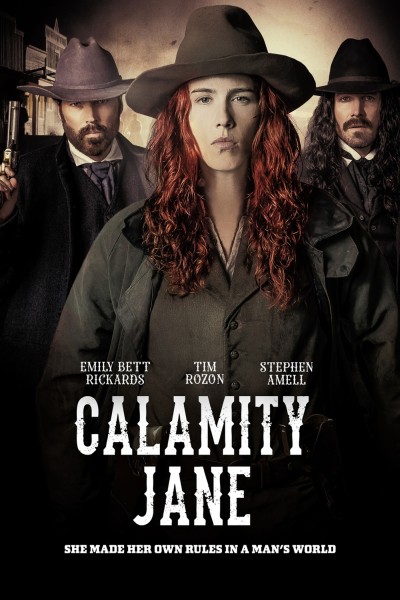 Calamity Jane and Wild Bill Hickok are two of the most well-known names in the culture of the Wild West, though the reality of both individuals is almost impossible to separate from the myths which surround them. So it’s kinda pointless to complain about historical accuracy in films which focus on them. Better just accept them as effectively being fictional entities, which can be used for whatever purpose a filmmaker desires. Here, it’s the death of Wild Bill (Stephen Amell, best known as TV’s Arrow) in a poker game, which sets his girlfriend Jane (Rickards, also from the same series) off. She goes on the trail of Jack McCall (Allon), the scumbag responsible, who has understandably opted to depart Deadwood.
Calamity Jane and Wild Bill Hickok are two of the most well-known names in the culture of the Wild West, though the reality of both individuals is almost impossible to separate from the myths which surround them. So it’s kinda pointless to complain about historical accuracy in films which focus on them. Better just accept them as effectively being fictional entities, which can be used for whatever purpose a filmmaker desires. Here, it’s the death of Wild Bill (Stephen Amell, best known as TV’s Arrow) in a poker game, which sets his girlfriend Jane (Rickards, also from the same series) off. She goes on the trail of Jack McCall (Allon), the scumbag responsible, who has understandably opted to depart Deadwood. 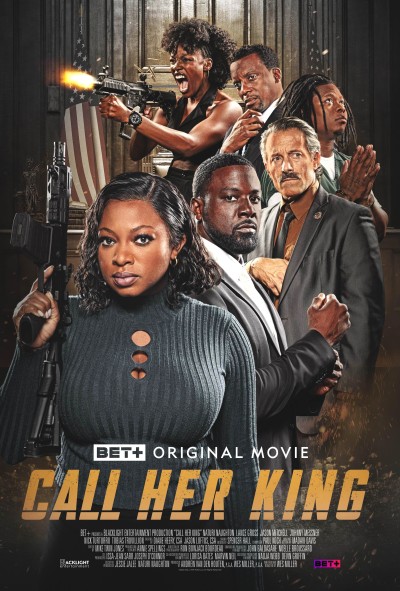 After the impressive surprise which was
After the impressive surprise which was 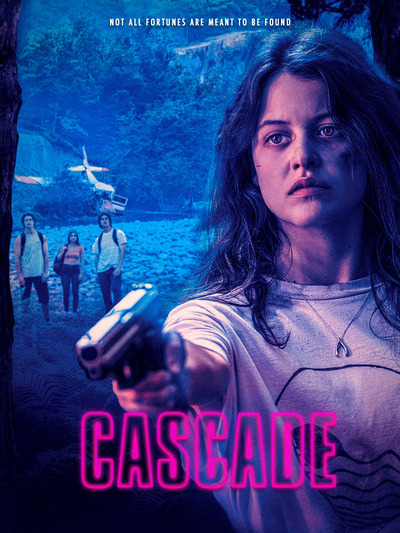 It’s kinda interesting to compare this to
It’s kinda interesting to compare this to 
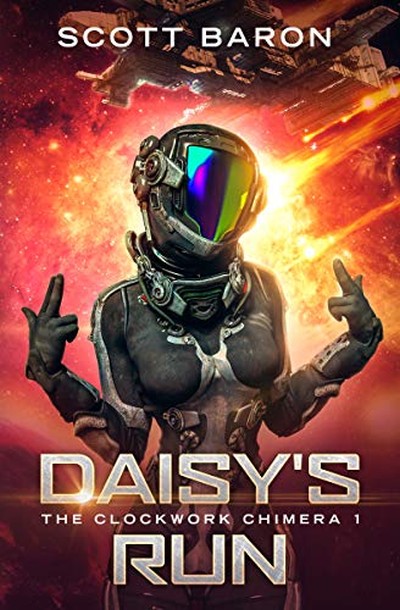 By the time I reached the end of this, what stood out most is how far we had come from the initial scenario. We start way out in deep space, where the crew of the Váli are awoken from their cryo stasis after the ship suffers significant damage as a result of a hull breach. By the end, everything has changed dramatically. The situation back on Earth, the mission of the Váli, and the very nature of the heroine, 25-year-old comms and electronics specialist, Daisy Swathmore, are are all radically different from what they initially seem to be. It’s basically a dramatic arc for the entire human race.
By the time I reached the end of this, what stood out most is how far we had come from the initial scenario. We start way out in deep space, where the crew of the Váli are awoken from their cryo stasis after the ship suffers significant damage as a result of a hull breach. By the end, everything has changed dramatically. The situation back on Earth, the mission of the Váli, and the very nature of the heroine, 25-year-old comms and electronics specialist, Daisy Swathmore, are are all radically different from what they initially seem to be. It’s basically a dramatic arc for the entire human race. This Taiwanese production takes place on an island where women have been separate from men for 23 generations, developing more or less your stereotypical Amazonian society. Men are rejected, male babies tossed out to see to sink or swim (typically the former) and they have build a giant, albeit largely unconvincing, statue of their founding ruler, which fires cannonballs out of its eyes. This is not inappropriate, since the current occupant of the throne, Queen Nadanwa (Yeung). has a harsh line in anti-male rhetoric (“All men are dangerous!”), accompanied by castration. Her subjects dress either in flimsy white robes or shiny battle armour, and engage in gymnastic or circus-related forms of entertainment.
This Taiwanese production takes place on an island where women have been separate from men for 23 generations, developing more or less your stereotypical Amazonian society. Men are rejected, male babies tossed out to see to sink or swim (typically the former) and they have build a giant, albeit largely unconvincing, statue of their founding ruler, which fires cannonballs out of its eyes. This is not inappropriate, since the current occupant of the throne, Queen Nadanwa (Yeung). has a harsh line in anti-male rhetoric (“All men are dangerous!”), accompanied by castration. Her subjects dress either in flimsy white robes or shiny battle armour, and engage in gymnastic or circus-related forms of entertainment. Liane Zane’s Elioud Legacy trilogy, all three books of which I’ve previously reviewed, is supernatural fiction, written by a Roman Catholic author, and premised on the fictional conceit that matings between angelic beings (both fallen and unfallen) and humans have been going on since before the Flood, producing mixed-race offspring who are physically human but have certain heightened physical or even latent supernatural abilities. That trilogy focused on three strong and courageous young women, who when it opened were completely unaware of their angelic genes, and all of whom were both serving in the intelligence services of their various countries, and collaborating with each other on the side in a covert alliance to provide some special protection for the victims of sexual assault and trafficking. The Covert Guardian is the first volume of a projected prequel trilogy, set a few years before the opening of the previously-published one, which will tell the “origin story” of their friendship and alliance. Here, our protagonist is Olivia Markham, the trio’s unofficial ringleader, and we learn how, as a 20-year-old college pre-med student, she unexpectedly came to join the CIA.
Unlike the first trilogy, this one really has no supernatural elements. Readers who’ve read the former will suspect, from certain subtle clues, that a couple of secondary characters here may also be Elioud, and will remember the St. Michael medal (a gift from her sensei) that Olivia wears, which feels strangely warm at times; and she has a sort of instinctive sixth sense for approaching danger that her then-boyfriend rather snidely dismisses as her “spidey sense.” But none of this is obviously paranormal nor impossible to explain naturalistically. I’ve classified the book as straight-out, descriptive action-adventure and espionage fiction, and it will definitely appeal to fans of those genres whether they have any liking for supernatural fiction or not.
The previously-published books mentioned, as a painful experience in Olivia’s past, the murder of her cousin Emily when the two girls were 16; they were close, and the tragedy was a formative factor in shaping Olivia’s deep desire to protect the innocent victims of brutality. In the modern U.S., the wheels of the justice system grind very slowly, so the killer’s trial was delayed until the summer before Olivia was to become a junior at Brown Univ. (She’s New England born and bred, living with her family in a suburban town outside Boston.) When our tale opens, soon after testifying, Olivia’s been talked by her boyfriend into joining him in a vacation on Ibiza, a real-life Mediterranean island off the coast of Spain which is a popular tourist destination, as a supposed opportunity to rest and heal from the re-lived traumatic experience. Even at this stage in her life, she’s strong, physically fit and athletic, smart, brave and quick-thinking; and since Emily’s murder, she’s been taking serious martial arts training. (And then there’s that “spidey sense” I mentioned….)
These qualities will stand her in good stead when, just four pages into the narrative, a squad of Islamist terrorists hit the beach, bent on slaughtering the revelers. Fortunately, a CIA counter-terrorist strike force is nearby; but by the time the action is over, Olivia’s displayed enough mettle to get their attention. (As they’ll soon learn, it also doesn’t hurt that she’s fluent in several languages, and qualified for the U.S. Olympic team in archery while still in high school.) Before the summer is over, she’s training at a CIA-run camp in North Carolina, and she feels that she’s found her true calling. And as luck would have it, an attractive female college student might just fit the mission profile for getting close to a wealthy young playboy type suspected of funding global terrorist activities. But chicanery, corruption, and betrayal of the U.S. aren’t necessarily things that only go on outside of the CIA, and our heroine’s path to joining the Company may not be an easy cake-walk.
Although the books of the Elioud Legacy trilogy are all thick, at just 155 pages, this one is more novella length, and a quick read. Like the former books, though, it moves around geographically, in this case to locations on three different continents; and the author’s knowledge of the physical geography of all of these settings is impressive. She’s a skilled wordsmith, seasoned in the novelist’s craft and able to immerse the reader in the story, and there are some surprises up her sleeve. For readers who want danger, tension, and well-depicted action scenes, this yarn definitely delivers. It’s not characterized by profound ethical dilemmas or deep spiritual, philosophical or political content, being more straightforward in those areas (in the context of the espionage genre, Zane is more in the tradition of Manning Coles or Alistair MacLean than, say, John LeCarre’), but I don’t view this as is any sense a fault, nor will most genre fans. What readers –genre fans or not– do want in fiction, more than action and danger, is the human element, a central character(s) we can like and feel invested in enough to care about the action and danger in the first place. That test is amply met here. Olivia is a winsome, dynamic protagonist whom we get to know and appreciate, and this is a character-driven tale of her growth and maturation in various ways in the crucible of a testing ordeal.
As I’ve said before in reviewing this author’s work, it’s fiction written by a Christian, rather than the kind of commercially “Christian fiction” the book trade markets as such. Olivia’s a basically kind and ethical-minded person, and cares about right and wrong as she understands them; but by her own statement, here she’s still “not really a believer.” Bad language is a hair more prominent here than in the first trilogy, though it’s actually more prominent in the first few pages here than it is in most of the book. College-age Olivia herself is capable, when she’s angry, of thinking or saying some pretty bad words, including obscenity (in a couple of languages). And though there’s no explicit sex, we know that an unmarried sexual encounter takes place at one point. The author makes us completely understand the psychology behind it; it’s a case of allowing the character to be who she realistically is, and possibly to grow through all of her decisions, both the good and the misguided ones, into the person she’s finally becoming. (That’s what good authors do.)
Finally, a worthwhile question might be, does a reader need to have read the Elioud Lagacy books before reading this one? My answer would be no; having read those books will allow you to better appreciate some adumbrations of the future you can see here, but it’s not essential, and no knowledge of them is presupposed here. You could begin with this book as an appetizer for the corpus as a whole.
Author: Liane Zane
Publisher: Zephon Romance; available
Liane Zane’s Elioud Legacy trilogy, all three books of which I’ve previously reviewed, is supernatural fiction, written by a Roman Catholic author, and premised on the fictional conceit that matings between angelic beings (both fallen and unfallen) and humans have been going on since before the Flood, producing mixed-race offspring who are physically human but have certain heightened physical or even latent supernatural abilities. That trilogy focused on three strong and courageous young women, who when it opened were completely unaware of their angelic genes, and all of whom were both serving in the intelligence services of their various countries, and collaborating with each other on the side in a covert alliance to provide some special protection for the victims of sexual assault and trafficking. The Covert Guardian is the first volume of a projected prequel trilogy, set a few years before the opening of the previously-published one, which will tell the “origin story” of their friendship and alliance. Here, our protagonist is Olivia Markham, the trio’s unofficial ringleader, and we learn how, as a 20-year-old college pre-med student, she unexpectedly came to join the CIA.
Unlike the first trilogy, this one really has no supernatural elements. Readers who’ve read the former will suspect, from certain subtle clues, that a couple of secondary characters here may also be Elioud, and will remember the St. Michael medal (a gift from her sensei) that Olivia wears, which feels strangely warm at times; and she has a sort of instinctive sixth sense for approaching danger that her then-boyfriend rather snidely dismisses as her “spidey sense.” But none of this is obviously paranormal nor impossible to explain naturalistically. I’ve classified the book as straight-out, descriptive action-adventure and espionage fiction, and it will definitely appeal to fans of those genres whether they have any liking for supernatural fiction or not.
The previously-published books mentioned, as a painful experience in Olivia’s past, the murder of her cousin Emily when the two girls were 16; they were close, and the tragedy was a formative factor in shaping Olivia’s deep desire to protect the innocent victims of brutality. In the modern U.S., the wheels of the justice system grind very slowly, so the killer’s trial was delayed until the summer before Olivia was to become a junior at Brown Univ. (She’s New England born and bred, living with her family in a suburban town outside Boston.) When our tale opens, soon after testifying, Olivia’s been talked by her boyfriend into joining him in a vacation on Ibiza, a real-life Mediterranean island off the coast of Spain which is a popular tourist destination, as a supposed opportunity to rest and heal from the re-lived traumatic experience. Even at this stage in her life, she’s strong, physically fit and athletic, smart, brave and quick-thinking; and since Emily’s murder, she’s been taking serious martial arts training. (And then there’s that “spidey sense” I mentioned….)
These qualities will stand her in good stead when, just four pages into the narrative, a squad of Islamist terrorists hit the beach, bent on slaughtering the revelers. Fortunately, a CIA counter-terrorist strike force is nearby; but by the time the action is over, Olivia’s displayed enough mettle to get their attention. (As they’ll soon learn, it also doesn’t hurt that she’s fluent in several languages, and qualified for the U.S. Olympic team in archery while still in high school.) Before the summer is over, she’s training at a CIA-run camp in North Carolina, and she feels that she’s found her true calling. And as luck would have it, an attractive female college student might just fit the mission profile for getting close to a wealthy young playboy type suspected of funding global terrorist activities. But chicanery, corruption, and betrayal of the U.S. aren’t necessarily things that only go on outside of the CIA, and our heroine’s path to joining the Company may not be an easy cake-walk.
Although the books of the Elioud Legacy trilogy are all thick, at just 155 pages, this one is more novella length, and a quick read. Like the former books, though, it moves around geographically, in this case to locations on three different continents; and the author’s knowledge of the physical geography of all of these settings is impressive. She’s a skilled wordsmith, seasoned in the novelist’s craft and able to immerse the reader in the story, and there are some surprises up her sleeve. For readers who want danger, tension, and well-depicted action scenes, this yarn definitely delivers. It’s not characterized by profound ethical dilemmas or deep spiritual, philosophical or political content, being more straightforward in those areas (in the context of the espionage genre, Zane is more in the tradition of Manning Coles or Alistair MacLean than, say, John LeCarre’), but I don’t view this as is any sense a fault, nor will most genre fans. What readers –genre fans or not– do want in fiction, more than action and danger, is the human element, a central character(s) we can like and feel invested in enough to care about the action and danger in the first place. That test is amply met here. Olivia is a winsome, dynamic protagonist whom we get to know and appreciate, and this is a character-driven tale of her growth and maturation in various ways in the crucible of a testing ordeal.
As I’ve said before in reviewing this author’s work, it’s fiction written by a Christian, rather than the kind of commercially “Christian fiction” the book trade markets as such. Olivia’s a basically kind and ethical-minded person, and cares about right and wrong as she understands them; but by her own statement, here she’s still “not really a believer.” Bad language is a hair more prominent here than in the first trilogy, though it’s actually more prominent in the first few pages here than it is in most of the book. College-age Olivia herself is capable, when she’s angry, of thinking or saying some pretty bad words, including obscenity (in a couple of languages). And though there’s no explicit sex, we know that an unmarried sexual encounter takes place at one point. The author makes us completely understand the psychology behind it; it’s a case of allowing the character to be who she realistically is, and possibly to grow through all of her decisions, both the good and the misguided ones, into the person she’s finally becoming. (That’s what good authors do.)
Finally, a worthwhile question might be, does a reader need to have read the Elioud Lagacy books before reading this one? My answer would be no; having read those books will allow you to better appreciate some adumbrations of the future you can see here, but it’s not essential, and no knowledge of them is presupposed here. You could begin with this book as an appetizer for the corpus as a whole.
Author: Liane Zane
Publisher: Zephon Romance; available 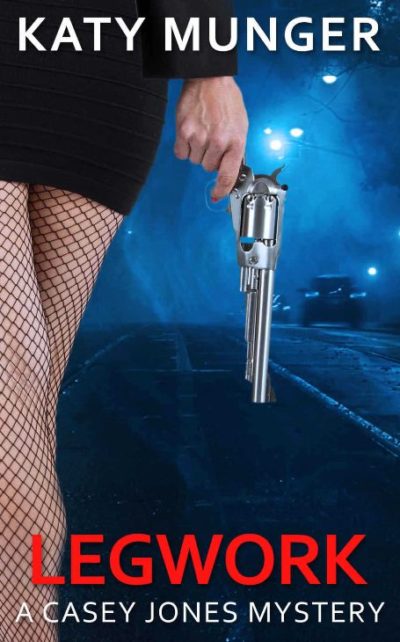 While omnibus editions of series are often a good way to pick up a large volume of content for a discounted price, they do have their downside. Especially for someone like me, who is basically bloody-minded and regards the dreaded Did Not Finish as a badge of failure. So even when a book is not that entertaining, I still find myself slogging on: and when there are three volumes in one, its a process which naturally takes that much longer. I think if I’d had just the one story here, I’d perhaps have looked upon this with a kinder eye. Three was tough, not least because the final story was the longest, occupying a solid forty percent of the set, and is also the least entertaining of the trilogy.
While omnibus editions of series are often a good way to pick up a large volume of content for a discounted price, they do have their downside. Especially for someone like me, who is basically bloody-minded and regards the dreaded Did Not Finish as a badge of failure. So even when a book is not that entertaining, I still find myself slogging on: and when there are three volumes in one, its a process which naturally takes that much longer. I think if I’d had just the one story here, I’d perhaps have looked upon this with a kinder eye. Three was tough, not least because the final story was the longest, occupying a solid forty percent of the set, and is also the least entertaining of the trilogy.